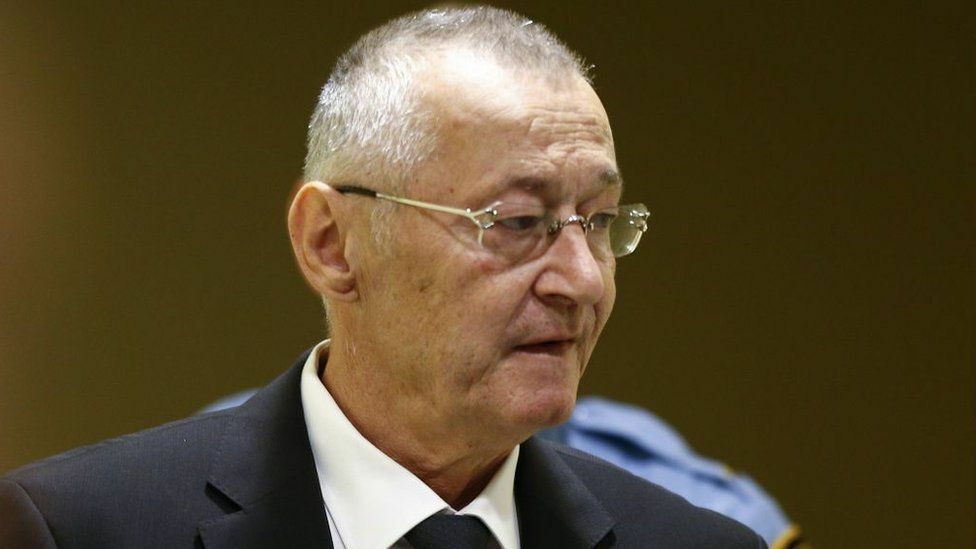UN tribunal increases Serbian officials’ sentences for ethnic cleansing role

The Hague’s UN war crimes tribunal has imposed longer prison sentences on two high-ranking former Serbian security officials, Jovica Stanisic and Franko Simatovic. Initially sentenced to 12 years in 2021, they will now serve 15 years for their involvement in training death squads accused of ethnic cleansing during the disintegration of Yugoslavia. This final verdict on the former Yugoslavia is the first to establish a direct connection between the Serbian state and the ethnic cleansing campaign.
Stanisic, ex-chief of Serbia’s State Security Service, and Simatovic, a senior intelligence operative and his deputy, were close allies of the late Serbian ex-President Slobodan Milosevic. The court found them guilty of setting up training camps and deploying the notorious Red Berets paramilitary units, or death squads. They were also held accountable for participating in crimes across Bosnia and in a Croatian town as part of a joint criminal plan to eliminate non-Serbs from large areas during the Balkan wars.
After the judgement, Kada Hotic, a former Srebrenica seamstress whose husband’s body was discovered in a mass grave, spoke to the BBC near a fountain outside the tribunal, reflecting on her decades-long pursuit of truth. “I’m looking at this beautiful blue sky and this building of the ICTY which managed to bring us partial justice. I lost my sons, my two children, my brothers, I cannot live in my Srebrenica, I just live to fight for justice. I want people to live in a country and not kill each other, we are all just humans,” she said.
Hotic, born in 1945, lost her son and two brothers in the genocide and never met her father, who died fighting the Nazis in World War Two. She expressed regret that her mother never sought justice for her father and hopes this ruling will inspire others.
However, Dr Iva Vukusic, assistant professor in international history at Utrecht University, pointed out that the two-decade-long legal process highlights the complexity of proving war crimes in international courts and underscores the challenges faced by those investigating Russia’s ongoing invasion of Ukraine. “It sends a message, it’s worth working on this, it’s worth documenting, it’s worth investigating, there is hope in that regard, and not all is lost,” she told the BBC.
The evidence collected during these trials offers a historical account of the events that transpired during the violent breakup of the former Yugoslavia. Many hope this will help heal past wounds and unite divided communities to build a peaceful, cohesive future.
Nenad Golcevski from the Humanitarian Law Centre said, “It’s the missing piece of the puzzle. Now there can’t be more denying of the role of Serbia, as a final judgment it completes the legacy, now it’s up to us, the people in the Balkans, to take that legacy forward, to use it, to find lessons from it, so that something like this is never repeated again.”
Latest Thailand News
Follow The Thaiger on Google News:


























